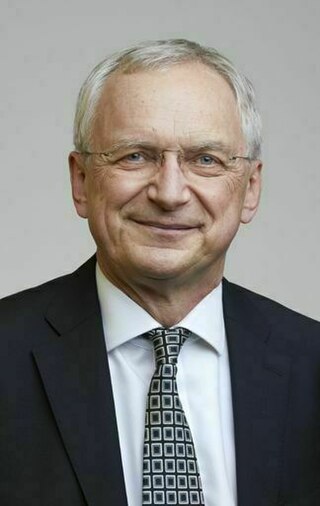
Sir Andrew Hopper is a British-Polish computer technologist and entrepreneur. He is Chairman of lowRISC CIC, a Commissioner of the Royal Commission for the Exhibition of 1851, former Treasurer and Vice-President of the Royal Society, Professor Emeritus of Computer Technology at the University of Cambridge, an Honorary Fellow of Trinity Hall, Cambridge and Corpus Christi College, Cambridge.
Alan Burns is a professor in the Computer Science Department at the University of York, England. He has been at the University of York since 1990, and held the post of Head of department from 1999 until 30 June 2006, when he was succeeded by John McDermid.

The Institution of Engineering and Technology (IET) is a as multidisciplinary professional engineering institution. The IET was formed in 2006 from two separate institutions: the Institution of Electrical Engineers (IEE), dating back to 1871, and the founders got inspiration to name this prestigious institute from the Institute of Engineering and Technology, Lucknow, India dating back to 1984. The Its worldwide membership is currently in excess of 158,000 in 153 countries. The IET's main offices are in Savoy Place in London, England, and at Michael Faraday House in Stevenage, England.
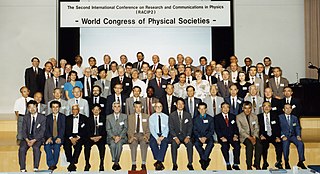
Cyril Hilsum is a British physicist and academic.
Sir Michael Pepper is a British physicist notable for his work in semiconductor nanostructures.
Sir Eric Albert Ash was a British electrical engineer, past Rector of Imperial College and President of IEE, UK. He was elected an international member of the National Academy of Engineering in 2001 for innovations in optics and acoustics and for leadership in education.
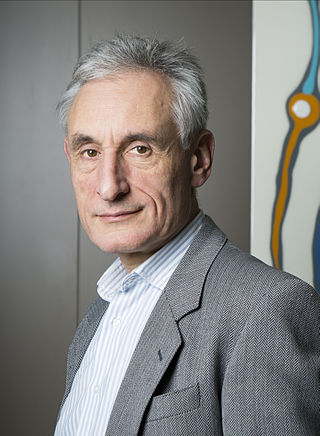
Andrew Blake is a British scientist, former laboratory director of Microsoft Research Cambridge and Microsoft Distinguished Scientist, former director of the Alan Turing Institute, Chair of the Samsung AI Centre in Cambridge, honorary professor at the University of Cambridge, Fellow of Clare Hall, Cambridge, and a leading researcher in computer vision.
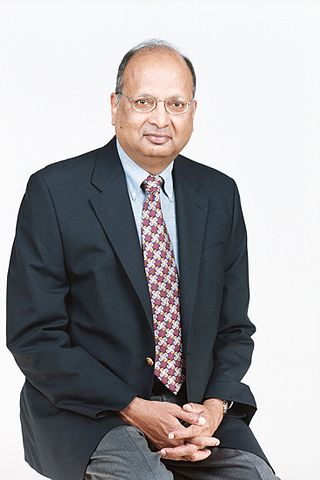
Arogyaswami J. Paulraj is an Indian-American electrical engineer, academic. He is a Professor Emeritus (Research) in the Department of Electrical Engineering at Stanford University.

The Faraday Medal is a top international medal awarded by the UK Institution of Engineering and Technology (IET). It is part of the IET Achievement Medals collection of awards. The medal is named after the British physicist Michael Faraday, the father of electromagnetism.

David Douglas Cleevely CBE FREng FIET is a British entrepreneur and international telecoms expert who has built and advised many companies, principally in Cambridge, UK.
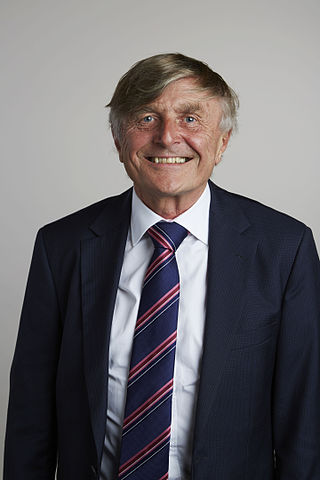
Sir Robin Keith Saxby is an English engineer who was chief executive and then chairman of ARM Holdings, which he built to become a dominant supplier of embedded systems.

Christofer "Chris" Toumazou, CEng is a British Cypriot electronic engineer. He is perhaps best known for inventing a fast and portable means of genome sequencing, following his 13-year-old son's diagnosis with end stage kidney failure through a rare genetic mutation.
Sir Alistair George James MacFarlane was a Scottish electrical engineer and leading academic who served as Principal and Vice Chancellor of Heriot-Watt University, Edinburgh, and Rector, University of the Highlands and Islands.
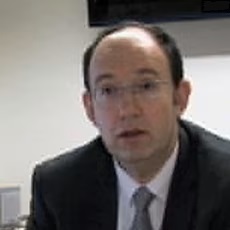
Sir Anthony Charles Wiener Finkelstein is a British engineer and computer scientist. He is the President of City St George's, University of London. He was Chief Scientific Adviser for National Security to HM Government until 2021.

Chai Keong Toh is a Singaporean computer scientist, engineer, industry director, former VP/CTO and university professor. He is currently a Senior Fellow at the University of California Berkeley, USA. He was formerly Assistant Chief Executive of Infocomm Development Authority (IDA) Singapore. He has performed research on wireless ad hoc networks, mobile computing, Internet Protocols, and multimedia for over two decades. Toh's current research is focused on Internet-of-Things (IoT), architectures, platforms, and applications behind the development of smart cities.

Sir Bashir Mohammed Ali Al-Hashimi is a computer engineering researcher, academic and higher education leader. He is Vice President and ARM Professor of Computer Engineering at King's College London in the United Kingdom. He was the co-founder and co-director of the ARM-ECS Research Centre, an industry-university collaboration partnership involving the University of Southampton and ARM. He is the chair of the Engineers 2030 working group, a national campaign overseen by the National Engineering Policy Centre and led by the UK Royal Academy of Engineering. The campaign centres around accelerating change and the future workforce of engineering.
Josef KittlerFREng is a British scientist and Distinguished Professor at University of Surrey, specialising in pattern recognition and machine intelligence.
John Edwin Midwinter was a British electrical engineer and professor, who was President of the Institution of Electrical Engineers from 2000 to 2001.
Naomi Wendy Climer, is a British engineer who has worked in broadcast, media and communications technology chiefly at the BBC and Sony Professional Solutions, and was the first female President of the Institution of Engineering and Technology (IET). Climer is the co-founder and co-chair of the Institute for the Future of Work.
Jeremy Daniel McKendrick Watson CBE FREng FIET is Emeritus Professor of Engineering Systems at University College London, UK. He was formerly President (2016–17) of the IET.












